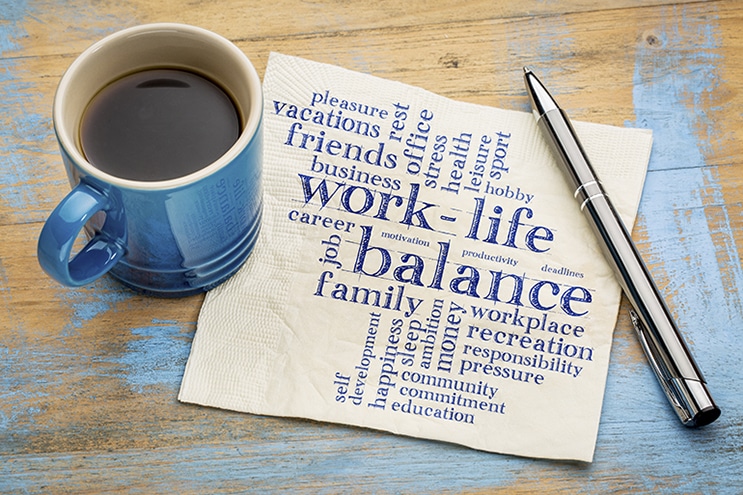Associate turnover at law firms is often as high as 25 percent annually. This is a problem on many levels: It can disrupt productivity and damage client relationships — and it’s expensive. According to Thomson West, law firm turnover costs the legal industry nearly $1 billion annually. Firms spend time and money onboarding associates, from recruiting to training, and must reinvest again when another associate needs to be hired to replace one that left.
Tactics for Reducing Associate Turnover
How are firms reducing their turnover, especially of millennials and younger lawyers? Firm leadership is focusing on what motivates and inspires millennial lawyers. Here are some of their tactics.
Create an Engaging Firm Culture
According to Major, Lindsey & Africa, law firms must create cultures that allow young lawyers to feel supported and engaged, develop skills, connect with mentors, and receive meaningful feedback on a regular basis. Once the culture is established, the firm must reinforce and reward behaviors that support the culture, to create a community of connectedness between associates, partners and staff.
To create a physical space that contributes to an engaging culture, some firms, like Morrison & Foerster, are offering “lounge-braries” — a hybrid lounge and library where lawyers and staff can work and socialize together. A lounge-brary houses law books and other law firm reference materials in a lounge-type setting with comfy couches and pillows.
Humanize Law and Do Good
According to JP Box, author of the ABA book “The Millennial Lawyer: How Your Firm Can Motivate and Retain Young Associates,” millennial lawyers want to make a difference in the world through the practice of law. Sandra Yamate, CEO of The Institute for Inclusion in the Legal Profession (IILP), echoes this point: For millennials, the impact they can make through their legal work often matters more than having an important title and a large paycheck.
Law firms are catering to young lawyers’ desires to do good by offering meaningful pro bono work. In 2018, Orrick Herrington & Sutcliffe LLP, which was named to the National Law Journal’s pro bono hot list, reported 99 percent of its lawyers and 100 percent of its summer associates participated in meaningful pro bono projects.
Firms are also reframing their practice areas to focus on a higher purpose: justice, not just billable hours.
After all, as Yamate of IILP reminds us, the legal profession is supposed to be about justice for all.
Support, Mentor, and Train
Law firms have learned that they can keep young associates by providing mentoring and training that encourages the lawyers’ enthusiasm for social justice. For example, Winston & Strawn has “Winston University Development System,” which provides legal skills training programs and practice-specific tools. It includes professional development opportunities, coaching services, career planning, stress management workshops, and CLE training options. These kinds of firmwide training and mentoring programs make young lawyers an integral part of the team early in their careers, which is imperative for millennials who want to make a difference right out of the gate. It also proves to lawyers that their firm cares about their careers and will invest in them.
The support system also offers meaningful and continuous feedback to help young lawyers develop their skills. This includes effective mentoring relationships and regular reviews, which have replaced the old-school annual review as the sole feedback for associates. Smart firms also offer executive and other types of coaching to help young lawyers define their career goals and path. For example, Alston & Bird offers its A&BCD Initiative, which provides group coaching to ensure their associates reach their career goals. This kind of coaching is particularly helpful in reducing turnover as it promotes meaningful career success aligned with the associates’ values and strengths.
Related: “New Lawyers Should Have More Than One Mentor”
Show Flexibility in WorkSpace and Hours
A number of firms offer flexibility in work location and the option of nontraditional hours. Lightfoot, Franklin & White, which was named the No. 1 Best Midsize Law Firm to Work For by Vault, is flexible about “when, how or where” its attorneys get the job done, and refers to its firm culture as “family-friendly.” Similarly, Orrick offers “Agile Working,” which allows for flexible hours, including job sharing, and flexible location, including working remotely. My firm, Berlandi, Nussbaum & Reitzas, is a small firm and focuses on entrepreneurial spirit in recruiting and retaining attorneys. This allows for creative lawyering focused on process and results, not billable hours. Reducing focus on the billable hour is often a precursor to flexibility in law firms.
Allow Flexible Career Paths
Firms like Alston & Bird allow flexibility of timing when it comes to the path to partnership, taking into account the personal lives of their associates to determine when the time is right. Firms also offer alternative career paths within the firm, other than partnership, for lawyers who don’t want or otherwise cannot achieve partnership. Roles in HR, professional development, firm business management, and technology are a few of the alternative paths offered. And firms like Lightfoot, Franklin & White allow associates to work in different practice areas so they can experience different kinds of matters and learn additional skills.
Let Associates Be People, Not Just Lawyers
There is more to a good lawyer than her ability to practice law successfully: Lawyers are people outside the office. They have other interests, and those interests contribute to their effectiveness in their legal career.
When firms give their associates time to manage their personal lives, they work more efficiently and productively and remain happier in their work. The better balance between work and life significantly reduces turnover.
921 Illustration ©iStockPhoto.com

60-MINUTE MENTORING FOR LAWYER AND LAW STUDENTS
In this quick guide, Amy Timmer and Matthew Cristiano explain how episodic or “60-minute” mentoring works — and the leg up having multiple mentors can give new lawyers. Written with the mentee and mentor in mind, the guide offers resources both can use to make the most of mentoring relationships. Sample questions for mentees and mentors, plus programming tips for firms, law schools and bar associations.























